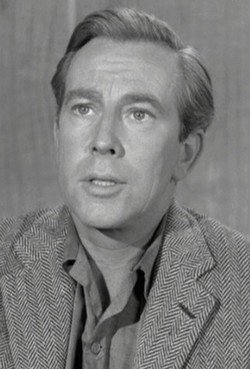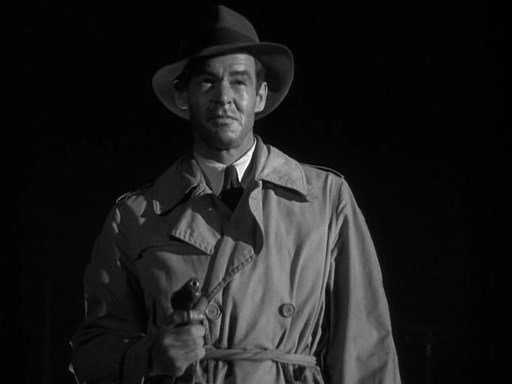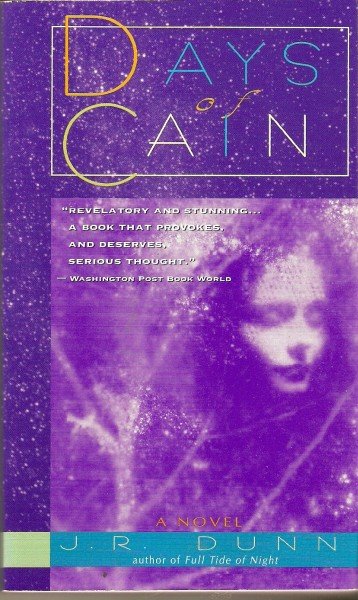
Clarence Muse
He acted for Frank Capra, William Wellman, Ernst Lubitsch, Michael Curtiz, James Whale and Alfred Hitchcock, yet his name is barely known. True, sometimes his roles were little more than walk-ons, and often they were conceived as crude stereotypes, but even when he played rounded characters with numerous scenes and lines of dialogue (as in Heaven Can Wait, 1943), he often went uncredited.
There are at least two essays one could write about Clarence Muse: in one, the subject of race might not come up at all—looking at his deft comic and dramatic performances, we can appreciate his ability to steal a scene, or rather enhance it with an eye-catching contribution, just as we enjoy the nimble overplaying of a Eugene Pallette or a Franklin Pangborn. To talk about Muse as a black performer is, however, not only to acknowledge the obvious, but to give him additional credit for so often making something out of nothing, turning nameless manservants and train stewards into human beings.
Muse seems to have approached his work with optimism and confidence: sow’s ears might be mainly what was offered, but it was up to him to improve on the material. And he had an actor’s voracious eye for quality: if a part did offer a clue as to character or at least a vacant spot where some might be inserted by a dexterous performer, he would miss no opportunity.

A Ragtime Mind
Watching Bob Milne perform is like seeing the next step up in humanity’s progression, but realized in the form of a man you can engage in a friendly chat. He is the most phenomenal piano player I’ve seen or heard – for accuracy, speed, dexterity, emotion, sensitivity. His staples are ragtime and boogie-woogie, with a smattering of blues. He claims he never practices, but he plays some 250 gigs a year around the world. He owns no recordings or sheet music; he has no need for them because he can assimilate and reproduce any piece of music after hearing it once (putting him, perhaps, in a class with Mozart as far as that ability goes).
He was a French horn player in his late teens, but quit because the horn does require practice to keep the lips in form. So why doesn’t he play classical piano? He started out in honky-tonk bars in Detroit, playing what people wanted to hear and also trying to duplicate the speed and complexity of piano rolls – a supposedly impossible endeavor, since the rolls were reproduced by combining multiple players (Milne succeeded). Many say that ragtime is the most complex of all piano music. So maybe it’s the ultimate, continuing challenge.

The Will to Live
I first believed in god at age nine.
I first believed in Will Eisner at age seven.
God left at age 18. I bought my most recent Eisner collection (Hawks of the Sea – his first comic strip) last year.
I know I was seven because when I rifle through the black and white reprints of The Spirit from 1946 I recognize many of the stories. In some cases, I can still recall the color.

On Hypocrisy and Genocide - How Gaza Has Exposed the West Like Never Before
The Israeli genocide in Gaza will be remembered as the moral collapse of the West.
As soon as the Israeli war began, following the Al-Aqsa Flood Operation on October 7, every moral or legal frame of reference that Washington and its western allies supposedly held dear was suddenly dropped. Western leaders rushed to Israel, one after the other, offering military, political and intelligence support - along with a blank check to rightwing Israeli Prime Minister, Benjamin Netanyahu and his generals to torment the Palestinians.
The likes of the US Secretary of State, Antony Blinken, went as far as joining Israel’s first war council meeting, so that he could take part in the discussion which directly resulted in the Gaza genocide.

The Demiurge and the American Eyesore
It is the custom of illuminated manuscripts to transform sacred words into shimmering icons which break, easily, beyond the sensory limitations of simple text, rendering ordinary letters into evocative, animate visual form that invites the eye to idle awhile at the brink of transcendence, rather than stand at a distance, remote and unyielding, daring to be comprehended, accepted, believed. Strange and barely recognizable wildlife appears on vellum leaves, creatures that wind and unwind in ceaseless whirlpools of bejeweled abstraction. Or they are, if you prefer, the spirited exoskeletons of snakes, dragons, waterbirds — Celtic and Germanic obsessions meeting the Apostles of Christendom. Emerging in the British Isles between 500–900 C.E., The Lindisfarne Gospels provide an arena, lapidary and starlit, where paganism devours Christianity while also birthing the religion anew into what can only be described, if you're honest, as “motion pictures.”

Zis. Boom. Bah.
The tenth edition of Zis. Boom. Bah. is entitled …
Heroes for Sale
OPEN THIS POST TO LISTEN IN
https://archive.org/details/zbb10
*
Scene 1
Alex Bartha’s Hotel Traymore Orchestra - It Must Be Swell to Be Laying Out Dead
Chick Bullock & His Levee Loungers - Are You Making Any Money?
Freddy Martin & His Orchestra - Remember My Forgotten Man
Blue Steele & His Orchestra - There’s a Tear for Every Smile In Hollywood
*
Scene 2
Chahadé Effendi Saadé - Taqsim rast
Kanoni Artaki - Soultanigiah
Moustapha Bey Rida - Taxim hugaz kar wahda
Kementchedi Alecco - Kurduli hidjazkiar taxim
*
Scene 3
Victor Military Band - United Empire March
Imperial Marimba Band - General Pershing March
Charles Prince’s Band - Manhattan Beach March
Berg’s Concert Band - Marche Indienne
*
Scene 4
Henry Burr - America, Here’s My Boy!
Alfred Lester - A Conscientious Objector
Frederick Wheeler - Boys In Khaki, Boys In Blue
Morton Harvey - I Didn’t Raise My Boy to Be a Soldier
*
Scene 5
Irān-od-Dowleh Helen - “golriz (Shur)
Moluk Zarrābi - "darāmad, "zābol (Chahārgāh)
Abd-Ol-Hoseyn Shahnāzi - "mokhālef (Segāh)
Mortezā Ney-Dāvud - "bayāt Esfahān, Bayāt Rāje’ (Homāyun)
*
Scene 6
Ramona, with The Park Avenue Boys - We’re Out of the Red
Horace Heidt & His Orchestra - Dawn of a New Day
Victor Young & His Orchestra - The Grass Is Getting Greener
Paul Robeson - Spring Song
by RJ Lambert

The Age of Chiselry
Oh Talkies; you were so young and unapologetic. Your players weren’t necessarily pretty, but they had snappy comebacks and sassy retorts, haiku spit straight from America’s open sewers, tenements and speak-easies. Inhale that pure, sweet spleen of Edward G. Robinson (“Aah roll your hoop”) or William Gargan (“Ring off, dumb-bell”).
I imbibe the voice of James Cagney with twisted glee, as if I’m celebrating some perverse victory when he yells, “Down, bezark, down!” What is this gloomy zest for life, something ricocheting in the atmosphere, a hip jazz tempo — can we honestly call it escapism? We want to be able to go crazy, but with someone holding our hand.
Each hairy-knuckled Adam did his level-best to fast-talk us out of The Great Depression. Every hard-knocks Eve whispered New Deal Dada to quiet our jangled nerves and howling bellies. Up on the screen, no fantasy, ourselves, one choral personage laughing backwards in sync sound, unrepentant, unredeemed. Zasu Pitts, Evalyn Knapp, Glenda Farrell, Pert Kelton – strange and lovely names echo immortal in my ears, women who kissed “yeggs” and stayed out late with their “bindelestiff” pals.
Empty pockets? We called them “Hoover Dollars” or, drooping inside-out, “Hoover Flags,” banners of a bedraggled nation. Those who spoke Pig Latin (many were fluent then) said “oday” for the money nobody had, a.k.a. “mezuma,” “sugar,” “cush,” “potatoes.” The short, punchy use of words, poetry with grit – our Two-Fisted Humanism muscled its way into the Sound Era as movie palaces rumbled.

Big Boy
In the splendid menagerie of players, archetypes, stereotypes and shtars who toiled before the cameras at Warner Bros./First National in the first blush of economic depression, none is more difficult or wears less well with time than Al Jolson. He was a man of undeniable talent, yes; and a star of such immense proportion that his name – unlike that of say, George Arliss – is still somewhat known, even to this doggedly amnesiac society. Hopelessly addicted to the approval of an audience, any audience, it has long been said that he could be mesmerizing on stage (“To sit and feel the lift of Jolson’s personality,” gushed Robert Benchley in his review of the 1925 Broadway hit Big Boy, “is to know what the coiners of the word ‘personality’ meant. Unimpressive as the comparison may be to Mr. Jolson, we should say that John the Baptist was the last man to possess such a power.”), but within the more intimate confines of a 78rpm recording or, more to the point, a motion picture, Jolson could be downright monstrous: an insatiable, chronically insecure, burnt-cork gorgon; eyes aflame; barreling heedless through every note, every step, every gesture; as if he were the primal ooze of showmanship itself. And while each picture he made for Warners in that period falls hostage in varying degrees to the man’s over-amplified brio, 1930’s Big Boy, adapted from the aforementioned stage success, carries the added burden of having Al Jolson, for almost the entirety of its 68 minute running time, playing the role of a stableboy in purebred, mainstream American blackface. You can forget about the plot – a textbook set of Musical Comedy contrivances involving crooked gamblers, a faithful servant, Reconstruction-era flashbacks and the honor of the Kentucky Derby – or even the film’s merits (of which there are unsurprisingly few), Jolson’s extended appearance ‘neath the burnt cork of Antebellum-era modernity has delivered this film to what small notoriety it enjoys (if that’s the word for it) to this day. Whatever it may have been then, it stands now as a cultural curio; the kind of film latter-day viewers, pretending to a sophistication as moored to reality as the trappings of minstrelsy, dismiss with a chuckle, maybe a shudder, maybe a stock banality or two on the less-evolved attitudes of the period it reflects (as if ours were an arcadia of human tolerance). It’s too debased to be classified as maudit; and it barely breathes in the 21st century consciousness.
by Tom Sutpen

The Sound of Fury
“America, as a social and political organization, is committed to a cheerful view of life,” Robert Warshow wrote in his seminal 1948 essay “The Gangster as Tragic Hero.” Democracies depend on the conviction that they are making life better and happier for their citizens; only feudal and monarchical societies can enjoy the luxury of fatalism or a fundamentally pessimistic view of life. Praising the gangster genre as a form of modern tragedy, Warshow also accounts for film noir in his statement that, “There always exists a current of opposition, seeking to express by whatever means are available to it that sense of desperation and inevitable failure which optimism itself helps to create.” The gangster’s demise is the purest American tragedy because it is driven by his mania to climb the ladder of success. The end of his saga is inevitable, so in chasing success he is really chasing failure; his self-destructiveness expresses defiance at the inevitability of defeat, but also confirms it.

The Inescapable (and Invisible) Whit Bissell
To the casual viewer, it might seem like character actors like William Demarest and Elisha Cook, Jr. appeared in every film ever made. And there’s no denying that in certain genres and during specific periods, they were ubiquitous. But the actors’ filmographies can’t touch that of the great Whit Bissell in terms of sheer volume. They may be better known, but the numbers go to Whit.

Nemesis Never Misses
“Sure, I was in the hospital, but I didn’t go crazy. I kept myself sane. You know how? I kept saying to myself: Joe, you’re the only one alive that knows what he did. You’re the one that’s got to find him, Joe. I kept remembering. I kept thinking back to that prison camp. One of them lasted to the morning. By then, you couldn’t tell his voice belonged to a man. He sounded like a dog that got hit by a truck and left him in the street.”
In Act of Violence, Robert Ryan is the Terminator – he travels to LA from far off, gets your address in the phone book, and comes after you to kill you. He will not stop. Dragging one dead leg behind him, wearing his New York clothes, raincoat and fedora, in the LA heat, a sheen of perspiration glazing his features. You go fishing and he rows after you, one oar squeaking like his stiff leg. He hides his boat in the shade of a rocky crag sculpted by God when drunk as an abstract Robert Ryan portrait (all the rockpiles of the Earth are drunken Robert Ryan likenesses), he even comes to your house. He sees your pretty wife and your baby and they inspire nothing but envy and the desire to kill.
Van Heflin, amphibious face with bulging brow, boiled egg eyes, mouth a remorseful stoma, is the Everyman, the quarry. He’s a good guy, a family man, runs a business, pillar of the dreamy small-town community, only he did something bad back in the war. Is Robert Ryan his conscience? Yes, a six-foot-four Jiminy Cricket with a handgun, coming to settle a debt.
Fred Zinnemann only made this one film noir, an unlikely genre at MGM, especially with a story that flips the lid off respectable family life and finds seething corruption in the all-American householder’s soul. Robert Surtees lights it for the highlights in Janet Leigh’s wide eyes, and the creeping darkness. Even the family home has perpetual window-frame cruciform shadows quartering up every room. Robert Ryan in the bright sunlight is even scarier because he simply has no business being there.

The Lesser Evil?
A novel about time travel and the Holocaust? How do you pull that off?
In the case of Days of Cain (probably the only such case), superbly.
The author, J.R. Dunn, has, to my knowledge, written only two other SF novels. I’ve read This Side of Judgment, which is good enough but nothing to get wildly excited about. I got wildly enough excited by Days of Cain, long out of print (released by Avon in 1997), that I scoured the Internet and bought 14 copies which I distributed to everyone I could think of who might be interested.
As I have to admit, many of them (including a published SF author) never responded with massive enthusiasm. Yet this doesn’t faze my own enthusiasm a bit. Both my wife (one of the most serenely intelligent beings on earth) and I felt we had wended our way through one of the finest explications of time travel written and one of the most telling and devastating unveilings of the Holocaust—one that puts Sophie’s Choice to shame.

